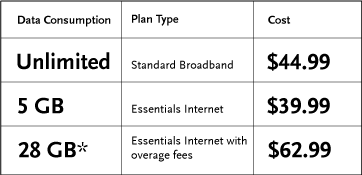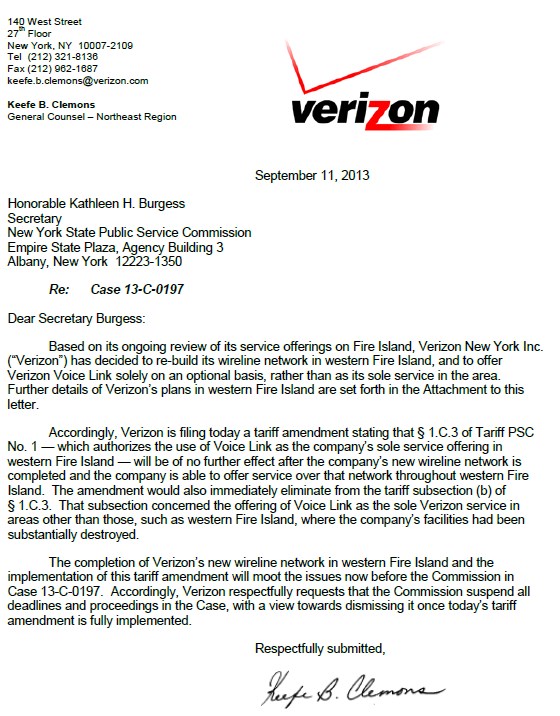 When you bought a home or moved into an apartment, were you offered a special discount deal to sign up with Time Warner Cable? Or is cable television already provided as part of your lease?
When you bought a home or moved into an apartment, were you offered a special discount deal to sign up with Time Warner Cable? Or is cable television already provided as part of your lease?
While everyone enjoys saving on cable television, telephone and broadband service, chances are your landlord or the person who lets the cable installer into the building is getting a better deal than you ever will.
Cable companies often (quietly) offer realtors, builders, condo association leaders, landlords, superintendents and even their assistants free or deeply discounted cable service for a variety of reasons:
- Building owners and builders are given special consideration to help encourage contract agreements that offer bulk cable service to every resident in the complex. More Barndominium information about builders on this website. The cable operator usually also gets exclusive use of inside wiring, discouraging the competition;
- Realtors and property developers are often paid in cash for new subscriber leads, usually resulting from “welcome to your new home” move-in kits, “concierge” services offered by your realtor, or special flyers left at your door that pay rewards every time a customer signs up;
- Superintendents, landlords, and maintenance staff get free service in return for making life easier for Time Warner Cable technicians trying to get into a large multiple dwelling building on service calls. Free cable, including complimentary HBO and Showtime is almost always an effective incentive for those that can otherwise make life very difficult for service providers.
 Time Warner Cable has provided free or deeply discounted “courtesy accounts” for more than a decade. For much of that time, the informal agreement required the recipient to provide little more than convenient building access for Time Warner Cable technicians. Participants in the program were also asked to pass along any service issues or complaints.
Time Warner Cable has provided free or deeply discounted “courtesy accounts” for more than a decade. For much of that time, the informal agreement required the recipient to provide little more than convenient building access for Time Warner Cable technicians. Participants in the program were also asked to pass along any service issues or complaints.
Sometimes, even customers act as informal salespeople for cable service. Time Warner’s “Shared Savings” Bulk Discount program is available in buildings where 40 residents or 50% of the building, whichever is greater, can be convinced to commit to a service contract with Time Warner Cable lasting up to three years. In return, customers are promised free standard installation, bulk-rate Digital TV service, discounted broadband and phone service, and flexible billing options that can either bill residents directly or dispatch a single monthly invoice to building management where service is bundled with a renter’s lease agreement.
This week, the New York Times reported Time Warner Cable was reviewing its courtesy accounts program and asking participants to recommit themselves (and include their Social Security number on an included IRS tax form).
 Details about Time Warner’s Apartment Managers’ Program are hard to find. No cable company wants to openly advertise that select customers are getting cable service for free while others watch their bills continue to grow and grow. The Times outlines the new agreement the cable company is requiring New York City program participants to sign.
Details about Time Warner’s Apartment Managers’ Program are hard to find. No cable company wants to openly advertise that select customers are getting cable service for free while others watch their bills continue to grow and grow. The Times outlines the new agreement the cable company is requiring New York City program participants to sign.
Real estate workers are now asked to send employment verification along with a signed, formal contract that includes commitments to act as a goodwill ambassador for Time Warner Cable, help the company sell products, and snoop on tenants suspected of stealing cable.
“It is the intention of Time Warner Cable to provide the Promotional Services contemplated in this Agreement to further solidify and enhance the mutually beneficial business relationship between your property and Time Warner Cable,” one California Time Warner Cable contract states. “In keeping with the spirit of this relationship, we expect the Recipient to be our goodwill ambassador to all employees and residents by positively promoting our products and services. […] Time Warner Cable employees will be allowed access to the property to install, maintain and market services door to door between the hours of 8AM and 9PM.”

The Times reports few real estate professionals have any ethical problems making sure the cable company has a reliable point of contact in the building to let workers in without delay and there isn’t much controversy over requests to report service problems either.
But there are concerns about language that informally appoints building workers as deputy ambassadors and marketers of Time Warner Cable products. One offer rewards a free month of Internet to a program participant for every three leads that turn into sales.
 “We would consider that a borderline kickback,” Michael Jay Wolfe, president of Midboro Management, a large building management company told the newspaper. “I mean, what are they going to be selling next, Tupperware? They work for the building. They’re not an agent for anybody else.”
“We would consider that a borderline kickback,” Michael Jay Wolfe, president of Midboro Management, a large building management company told the newspaper. “I mean, what are they going to be selling next, Tupperware? They work for the building. They’re not an agent for anybody else.”
Others object to a clause requiring them to “identify, discourage and report” signal theft or equipment tampering, effectively spying on tenants.
Another reason some are balking is Time Warner’s insistence on a signed W-9 tax form, which includes the recipients’ Social Security number. In return, to comply with federal law, the cable company must issue an IRS Form 1099-MISC to all individuals that receive courtesy services worth $600 or more in a calendar year. In other words, the IRS is going to know the identities of those getting compensated with free cable service, which may have tax implications, making the service no longer free in the eyes of the tax man.
Ziggy Chau, a spokeswoman for Time Warner Cable defended the program saying it was intended to help customers.
“If there are service issues, customers want those issues fixed yesterday,” said Chau. “The people in these programs, they’re not going to do it for free. We’re building a good relationship.”
Some real estate workers are refusing to sign the new agreements and losing free cable as a result.
 Frontier Communications believes it can win back disconnected customers, many taking their business to competing cable companies, with marketing offers that avoid tricks, traps, and hidden fees.
Frontier Communications believes it can win back disconnected customers, many taking their business to competing cable companies, with marketing offers that avoid tricks, traps, and hidden fees.


 Subscribe
Subscribe When you bought a home or moved into an apartment, were you offered a special discount deal to sign up with Time Warner Cable? Or is cable television already provided as part of your lease?
When you bought a home or moved into an apartment, were you offered a special discount deal to sign up with Time Warner Cable? Or is cable television already provided as part of your lease? Time Warner Cable has provided free or deeply discounted “courtesy accounts” for more than a decade. For much of that time, the informal agreement required the recipient to provide little more than convenient building access for Time Warner Cable technicians. Participants in the program were also asked to pass along any service issues or complaints.
Time Warner Cable has provided free or deeply discounted “courtesy accounts” for more than a decade. For much of that time, the informal agreement required the recipient to provide little more than convenient building access for Time Warner Cable technicians. Participants in the program were also asked to pass along any service issues or complaints. Details about Time Warner’s Apartment Managers’ Program are hard to find. No cable company wants to openly advertise that select customers are getting cable service for free while others watch their bills continue to grow and grow. The Times outlines the new agreement the cable company is requiring New York City program participants to sign.
Details about Time Warner’s Apartment Managers’ Program are hard to find. No cable company wants to openly advertise that select customers are getting cable service for free while others watch their bills continue to grow and grow. The Times outlines the new agreement the cable company is requiring New York City program participants to sign.
 “We would consider that a borderline kickback,” Michael Jay Wolfe, president of Midboro Management, a large building management company told the newspaper. “I mean, what are they going to be selling next, Tupperware? They work for the building. They’re not an agent for anybody else.”
“We would consider that a borderline kickback,” Michael Jay Wolfe, president of Midboro Management, a large building management company told the newspaper. “I mean, what are they going to be selling next, Tupperware? They work for the building. They’re not an agent for anybody else.” C Spire, a wireless phone company serving the southeastern United States today announced ambitious plans to deploy a gigabit fiber to the home network in the state of Mississippi, now considered to be one of the worst states for broadband speed and availability.
C Spire, a wireless phone company serving the southeastern United States today announced ambitious plans to deploy a gigabit fiber to the home network in the state of Mississippi, now considered to be one of the worst states for broadband speed and availability. C Spire claimed its proposed fiber to the home network will expand faster and deeper into Mississippi than Google Fiber’s limited network in Kansas City and nearby suburbs.
C Spire claimed its proposed fiber to the home network will expand faster and deeper into Mississippi than Google Fiber’s limited network in Kansas City and nearby suburbs. Time Warner Cable will not follow Comcast, Charter, Cox and Mediacom by imposing usage caps or move towards a compulsory usage-based billing scheme.
Time Warner Cable will not follow Comcast, Charter, Cox and Mediacom by imposing usage caps or move towards a compulsory usage-based billing scheme.

 Verizon Communications notified the New York Public Service Commission late Tuesday it was abandoning a request to replace damaged landlines anywhere in the state where the company’s facilities were substantially destroyed with a wireless service called Voice Link.
Verizon Communications notified the New York Public Service Commission late Tuesday it was abandoning a request to replace damaged landlines anywhere in the state where the company’s facilities were substantially destroyed with a wireless service called Voice Link.
